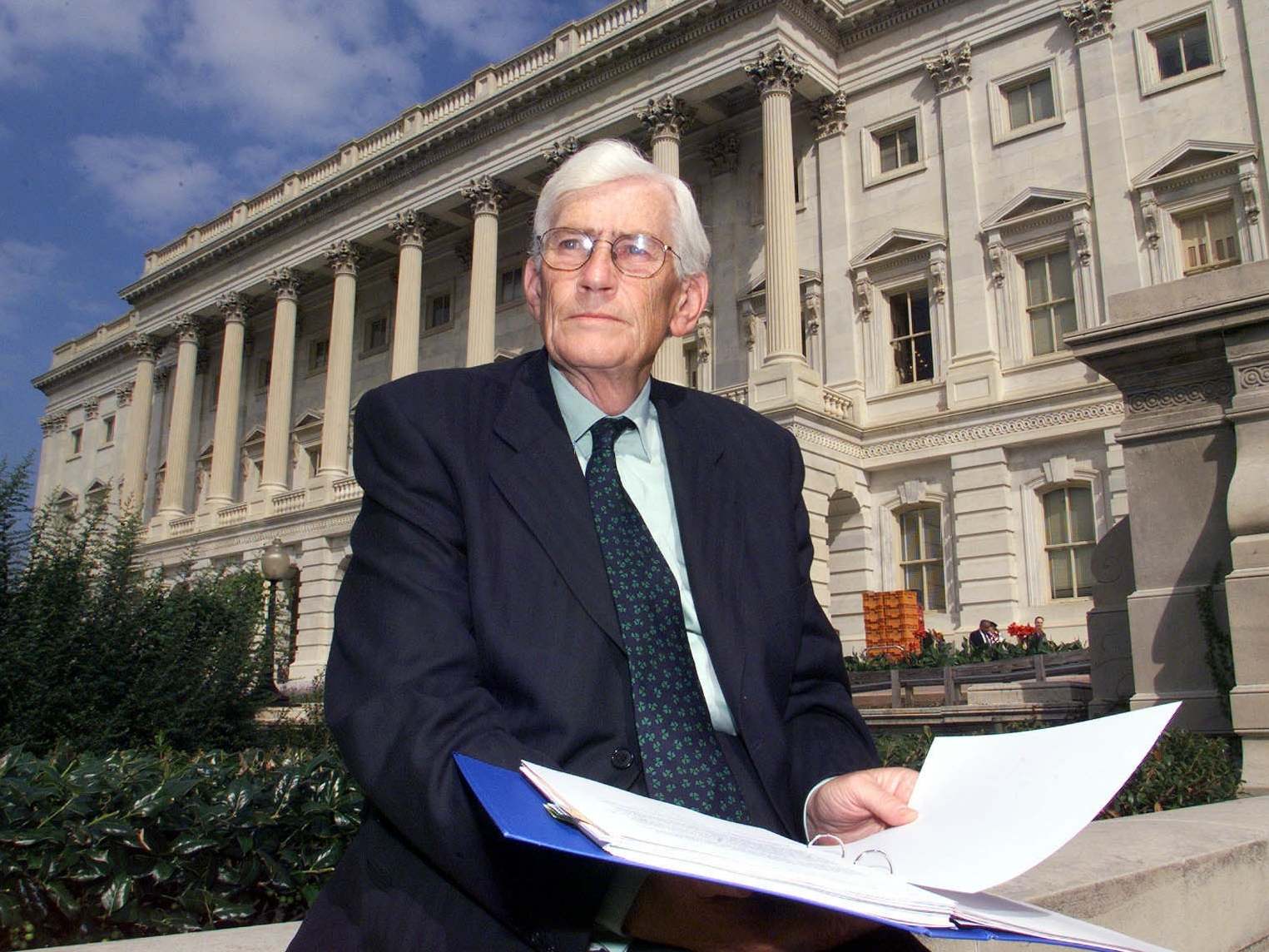Seamus Mallon: Northern Irish politician and key player in the Good Friday Agreement
He was a founder of the SDLP and later served as deputy first minister

Seamus Mallon, who has died aged 83, was a key figure in the negotiation and implementation of the Good Friday Agreement, established in 1998. A man of peace, he opposed violence on all sides of the political spectrum in Northern Ireland, whether from loyalists, republicans or the British state.
Mallon was born in 1936 in Markethill, a largely Protestant village in County Armagh, to Jane and Francis Mallon, a teacher. He and his Catholic family were under constant threat of attacks, as he recalled: “The reason we survived was there were Protestant people in the village and the area, and on a number of occasions people came to me and said, ‘Go off for the weekend’. So my survival in reality was thanks to them.”
His involvement in politics began in the Sixties when, as a teacher, he saw Catholic high school graduates suffering discrimination in employment and housing. In particular at this time, Catholics who were not property owners were not permitted to vote. Mallon joined the Northern Ireland Civil Rights Association, which had been established in 1967 under the slogan “one man one vote”.
Having begun his political career as a local councillor on Armagh District Council, Mallon was one of the founders, together with John Hume, of the Social Democratic and Labour Party (SDLP), created in August 1970. Working with Hume he sought to bring all sides, and especially the IRA and Sinn Fein, into constructive discussions towards peace.
At the height of the Troubles the SDLP became the most popular party, differentiating itself from Sinn Fein through its rejection of violence. When, in 1979, John Hume was elevated to the leadership of the SDLP, Mallon became his deputy, a role he held for the next 22 years.
In June 1996 all-party negotiations, known as the Stormont Talks, began at the Parliament Buildings in Stormont Castle. Mallon famously described these discussions as “Sunningdale for slow learners”, a reference to the ultimately unsuccessful December 1973 agreement.
The Good Friday Agreement could have failed but for the determination of all sides. Unlike Sunningdale, it did eventually succeed in bringing peace to Northern Ireland, following years of sectarian conflict. Mallon was appointed deputy first minister, serving alongside Ulster Unionist Party leader David Trimble, in the new power-sharing government which brought together Protestants and Catholics.
But the implementation of power-sharing was not all smooth sailing, as David McKittrick wrote in The Independent in July 1999: “This was supposed to represent, both actually and symbolically, a fresh start showing that old enemies could sink their differences for the common good. Sinn Fein showed up at the altar, but the unionist bridegroom was missing.”
Frustrated by the delays in the implementation of the agreement, Mallon resigned, launching a scathing attack on the Ulster Unionists in his resignation speech: “They use this crisis to bleed more concessions out of the governments, to bleed this very process dry. They are dishonouring the agreement. They are insulting its principles.” He “unresigned” soon afterwards.
When Hume retired from the SDLP in 2001, Mallon had the chance to become leader but chose not to, feeling that he was now too old. For the 2003 elections he did not contest his seat and in 2005 he stood down, to be replaced in his constituency by Conor Murphy of Sinn Fein. On retirement Mallon returned to live in his native Markethill.
Interviewed last year, Mallon spoke modestly of his role in bringing peace to Northern Ireland. “I think it’s very difficult to make an assessment of yourself, because without any doubt one is prejudiced,” he said. “I would simply put it this way: I got some things right, I got some wrong, but I was able to get on from the ones that were wrong to put them right. And as regards the ones I got right, I just regarded them as a stepping stone onto the next big issue.”
Mallon’s wife Gertrude (nee Cush) died in October 2016. He is survived by their daughter Orla.
Seamus Mallon, politician, born 17 August 1936, died 24 January 2020
Subscribe to Independent Premium to bookmark this article
Want to bookmark your favourite articles and stories to read or reference later? Start your Independent Premium subscription today.

Join our commenting forum
Join thought-provoking conversations, follow other Independent readers and see their replies